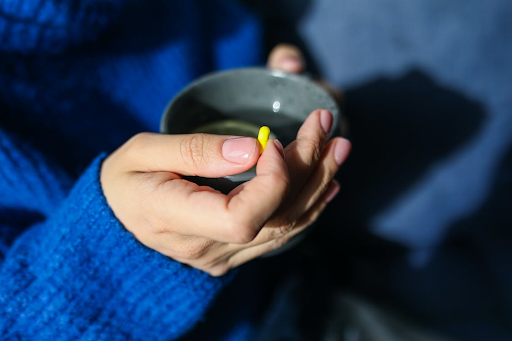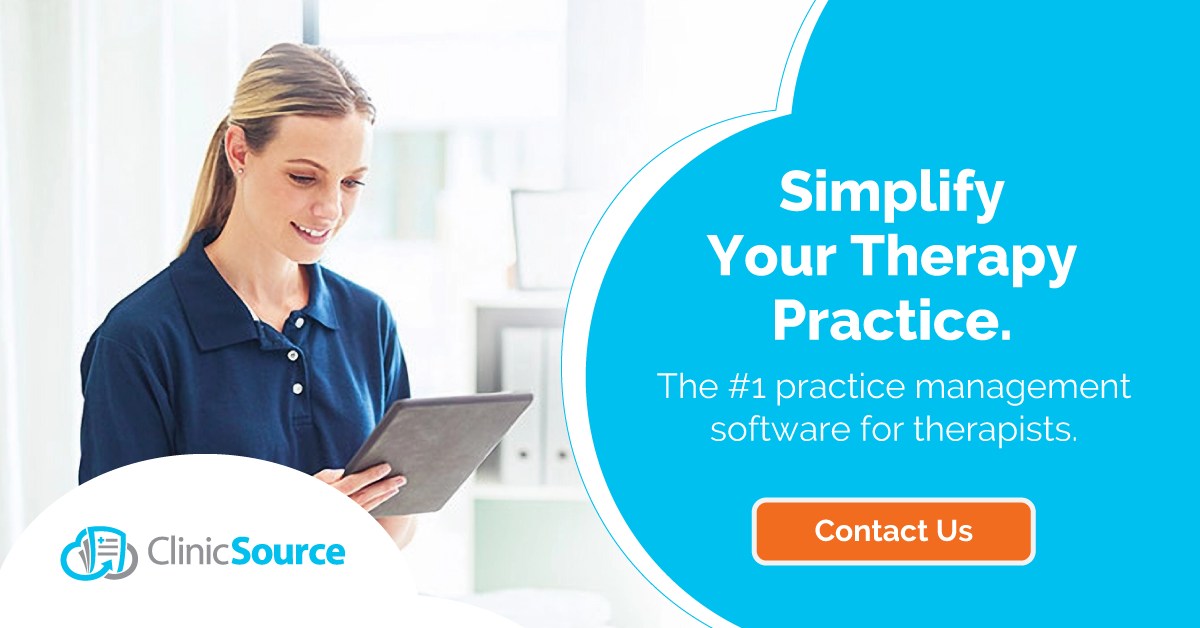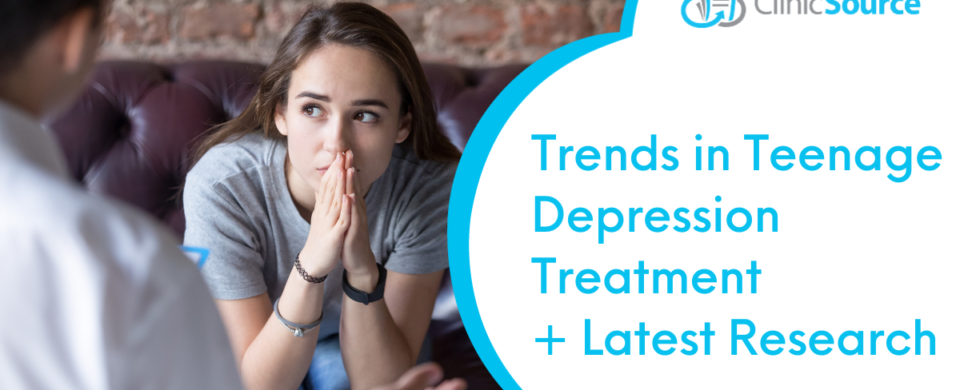
Highlights
- Teenage depression treatment is an ongoing topic of research, and therapists need to stay up to date.
- CBT and IPT sessions help adolescents understand how to manage depression and find new ways to reorder their thoughts.
- Medications such as SSRIs, antidepressants, and ketamine treatments alter brain chemicals and can produce antidepressant effects for depressed teens.
- Diet, exercise, and ECT may help regulate depression among adolescents.
As a mental health professional who works with adolescents, you know the importance of treating depression in teens so they can live full, happy lives. Understanding the latest treatment methods and research for treating teen depression, such as behavioral therapies and pharmacotherapy approaches, ensures you give your adolescent patients the best care possible.
The Growing Need for Teenage Depression Treatment
According to recent research, the prevalence of major depression among teenagers increased from 8.1% to 15.8% from 2009 to 2019, with teenage girls experiencing the highest increase, from 11.4% to 23.4%.
Adolescents with depression are at a greater risk for suicide and self-harm. The CDC’s 2022 Adolescent Behaviors and Experiences Survey found that 19.9% of high school students seriously considered suicide, and 9% attempted it.
Teenagers may also use alcohol as a coping mechanism to manage their symptoms of depression. A 2021 study reported that adolescents with depression at age 17 were more likely to have depression at age 22 and alcohol abuse issues by age 30.
These numbers highlight the growing problem of depression among teens and the need for practitioners to understand the latest trends and research regarding teenage depression treatments.
Current diagnostic protocols require a teenager to show five or more of the following symptoms daily for a significant portion of the day for at least two consecutive weeks to receive a depression diagnosis:
- Irritability
- Loss of joy in everyday activities
- Exhaustion
- Disruptions in sleep
- Sluggishness
- Weight gain or loss
- Issues with concentration
- Recurring suicidal thoughts or impulses
Early intervention with adolescent depression treatment is essential to improving health outcomes and teen behavior. Many therapies are available to help teenagers with depression, including medication and psychotherapy.
Psychotherapy Treatment for Teenage Depression
You can help teenagers with depression learn how to cope with life’s stressors through psychotherapy and behavioral therapy modifications. These modalities help teens cope with depression by exploring new ways of thinking and behaving. The most up-to-date and effective psychotherapy treatments include the following:
Cognitive Behavioral Therapy
Cognitive behavioral therapy (CBT) involves a therapist and patient working together to modify cognitive and behavioral patterns. Children and adolescents benefit from CBT by reducing the severity of PTSD and improving their depression and anxiety symptoms.
A CBT session usually starts with assessing the patient’s mood and a discussion of homework from the previous appointment, such as a patient rehearsing social skills and restructuring destructive beliefs. Afterward, the patient discusses their issues, with therapists providing feedback and homework for patients to continue implementing new behavioral skills.
While face-to-face CBT can be effective for teens, emerging evidence shows that computerized CBT (cCBT) programs may offer a more accessible alternative. These programs, such as COPE, use various media like pictures, videos, and text to help teens learn about and develop new cognitive skills.
A 2022 meta-analysis found that adolescents showed reduced anxiety and depression symptoms upon follow-up comparable with standard CBT approaches. You can utilize these programs along with virtual CBT therapy to help your teenage patients.
Interpersonal Therapy
Interpersonal therapy (IPT) focuses on identifying and improving problems that teenagers may experience in their relationships with parents and friends and life changes, such as moving to a new school. An IPT session may explore relevant teenage behavior challenges, such as independence, parental conflict, and sexuality.
Research has found that IPT patients who improved their work, social functioning, and interpersonal problems experienced positive outcomes in managing their depression.

Pharmacotherapy for Teenage Depression
As a therapist, you may engage in pharmacotherapy approaches for your teen patients. For this method, you can provide behavioral therapy while your client takes medication to help with their symptoms.
These medications help re-establish normal chemical balances in the brain and minimize disruptive symptoms so your patients can focus on changing their thinking patterns.
Selective Serotonin Reuptake Inhibitors (SSRI)
The first-line pharmacologic treatment for major depression in teenagers are selective serotonin reuptake inhibitors (SSRIs). SSRIs increase serotonin activity by blocking the reuptake of serotonin. This blockage results in resetting neural activity and targeting areas with low serotonin levels. Serotonin helps regulate behavior, mood, and memory. The most common SSRIs are fluoxetine (Prozac), sertraline (Zoloft), and escitalopram (Lexapro).
When a doctor recommends that a patient use SSRIs in conjunction with psychotherapy, the patient benefits from a combined psychological and physiological effect. For example, taking fluoxetine while participating in CBT therapy reduces the risk of suicide for young patients.
A physician must assess patients taking SSRIs between four and six weeks after taking them. If there is no improvement in depressive symptoms, the physician should determine the dosage and duration of treatment and recommend other medicines, such as antidepressants.
Antidepressants
When SSRIs do not work, a doctor may prescribe antidepressants such as serotonin and norepinephrine reuptake inhibitors (SNRIs). Unlike SSRIs, SNRIs enhance the effects of serotonin and norepinephrine in the central nervous system by blocking their reuptake from the synapses. Norepinephrine facilitates memory, attention, and mental focus, helping to regulate depressive symptoms.
The most common SNRIs are venlafaxine (Effexor) and duloxetine (Cymbalta). Though the FDA regulates duloxetine’s use for generalized anxiety disorder, recent research shows it can reduce depression symptoms in children.
Ketamine Treatment
Ketamine acts as an antidepressant by increasing glutamate levels in the brain’s frontal cortex and triggering the formation of new synapses. Adults experiencing depression had significant improvements within 72 hours of receiving ketamine infusions. After the ketamine infusion, the antidepressant effects lasted for three to seven days.
Teenagers with treatment-resistant depression may also benefit from intravenous ketamine. According to a study of teenagers taking ketamine, one ketamine infusion reduced depressive symptoms after two weeks.
Alternative and Complementary Treatments for Teen Depression
In addition to medication and therapy, teens may reduce depression symptoms by changing their diet and exercise habits. In severe cases, modern electroconvulsive therapy may be an effective teenage depression treatment.
Although you may not perform these treatments as a behavioral therapist, you can gather resources to share with your patients so they and their parents can explore these potential treatment options.
Diet and Lifestyle Changes
Supplementing with omega-3 fatty acids and vitamin D and following dietary advice from a nutritionist can help ease depression symptoms in adolescents. For instance, patients who ate sufficient amounts of fruit, vegetables, grains, and milk products were less likely to visit their primary care provider to address mental health symptoms.
Exercise also plays a part in reducing depression in adolescents. A study found adding physical activity during psychiatric hospitalizations for teenagers reduced their symptoms of depression. One study found that yoga reduces anxiety and stress, but more studies are needed on its effects on teenagers.
Electroconvulsive Therapy
Electroconvulsive therapy (ECT) uses an electrical current to pass through the brain, changing the brain chemicals and producing antidepressant effects. Adult patients have achieved rapid alleviation from suicidal ideation with ECT. After one week, 38% of patients showed full resolution of their symptoms, and 61% showed resolution after two weeks of completing ECT. More research for adolescent-specific patients is needed; however, the beneficial effects of ECT for severe depression in adults indicate it may be a viable option for severe teenage depression.

Support Teenage Depression Treatment Options with Integrated Therapy EMR
While staying up to date with the research in your field is important to giving your patients the best possible care, having the right tools for the job matters, too, starting with your therapy EMR.
ClinicSource’s integrated therapy EMR provides efficient reporting with time-saving documentation features for charting your patients’ progress and measuring results. Case histories, templates, and checkboxes allow you to document relevant information quickly and easily for your patients during treatment sessions.
The symptom templates in ClinicSource let you enter data from the DSM-5 manual and generate a comprehensive diagnostic summary. With ClinicSource, your practice stays up to date on new requirements with automatic updates, ensuring compliance and helping you choose appropriate treatment for all your patients.
To learn why ClinicSource is the best solution on the market for LCSWs, LPCs, MFTs, psychologists, and anyone working in the field of psychology, book a demo today.

Let Us Show You











